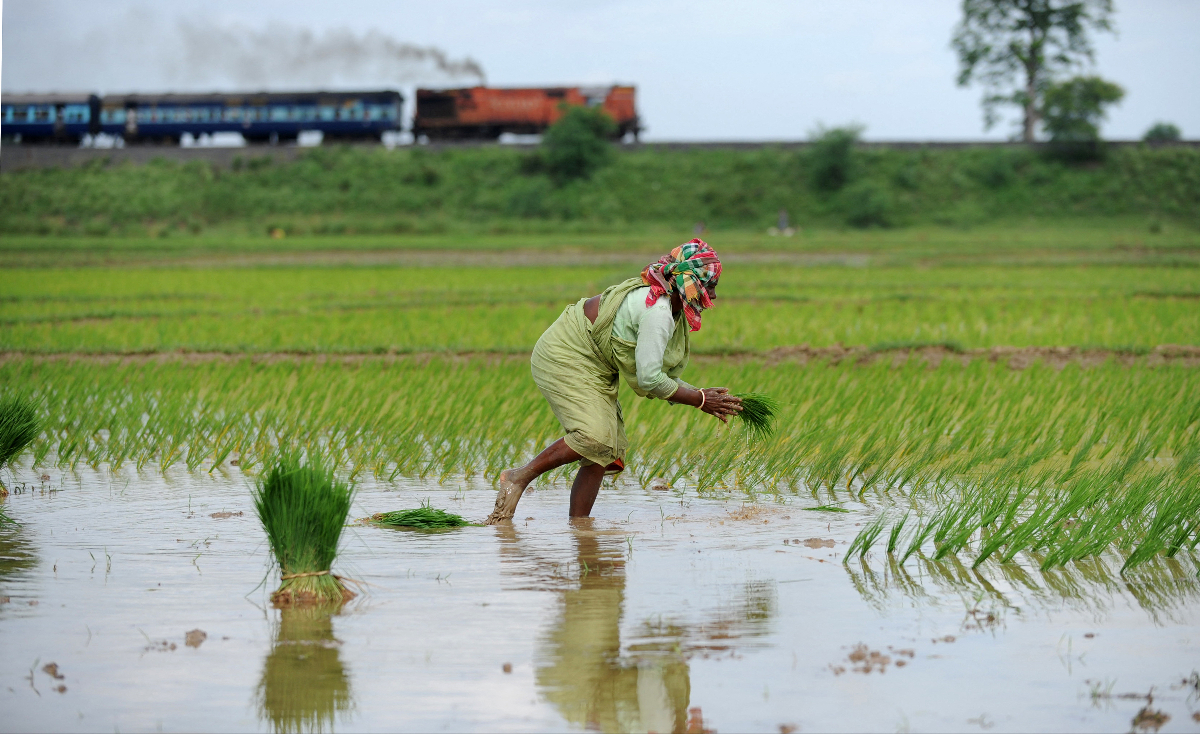The voluntary carbon offset market will reach $250 billion by 2050 from $2 billion in 2020, according to estimates made by Morgan Stanley. However, awareness of the monetary and environmental benefits associated with carbon credits is low.
Generally speaking, carbon offsets are granted when an organization or company engages in a practice that reduces CO2 emissions, such as replacing fossil-fuel-based energy sources with renewable energy sources, or (rarely) removes CO2 from the atmosphere through technology like carbon capture. Polluters then purchase these offsets to counter the CO2 they’re emitting, which lets them claim to be reducing their emissions or heading toward “net zero” carbon emissions. This has become increasingly important as awareness of CO2’s role in global warming has grown among the public and among public-company investors, and as governments have begun to face political pressure to cut CO2 emissions.
But not all carbon offsets are created equal, and the market is largely unregulated. There have also been highly publicized instances of carbon credits being granted for projects that did little to reduce emissions, leading to more uncertainty and downward price pressure in the market.
Big entities in the space find it hard to work at the grassroots level. Some large-scale carbon credit companies prefer working on renewable energy projects, including shifting to EVs or installing solar panels to generate electricity, as they require less resources and effort to measure and monitor carbon emissions. Similarly, industry giants in various sectors such as automobile, chemicals, and pharmaceuticals have been generating nature-based carbon credits natively, which leads to conflicts and criticism against their offsets.
Enter Varaha as an end-to-end developer for carbon credits that it generates by working with thousands of smallholder farmers yielding crops on a total land of over 700,000 acres across India, Bangladesh, Nepal, and Kenya.
After spending 17 years academically and professionally with farmers in India, agricultural engineer Madhur Jain co-founded Varaha in 2022 along with Ankita Garg (COO) and Vishal Kuchanur (CTO). Years before starting Varaha, Jain, while working with the Nobel Prize Laureate Michael Kramer at the social enterprise Precision Agriculture for Development as its country director for India, realized the need to incentivize farmers to limit crop residue burning, which contributes to a smog blanket during winters. It was early, as no methodologies were available at the time to create carbon credits from agriculture. However, the 34-year-old entrepreneur decided to start his venture once the methodologies started appearing in developed markets, including the U.S. and Europe.
Varaha now works with over 100 partners across all the geographies it presents to onboard smallholder farmers to help them follow sustainable and regenerative farming practices that result in quantifying emission reduction and soil organic carbon sequestration. This leads to the creation of nature-based carbon credits, which the startup sells to companies — mainly in Europe.
The startup has developed its measurement, reporting and verification (MRV) platform that uses a mix of remote sensing, machine learning and scientific research to quantify the sequestration (safely separating and storing harmful substances including carbon dioxide) and limit greenhouse gases from regenerative agriculture, afforestation and biochar projects. Consequently, these projects help farmers enhance their productivity, boost crop yields, save water, increase biodiversity, and improve climate adaptation.
Typically, farmers follow certain practices that eventually lead to carbon emissions. For instance, when farmers flood their farms to grow rice, Jain explained, the contact between the soil and the environment breaks due to the water layer and generates methane-emitting bacteria. This is so potent that 2% of the total global emissions today is rice methane emission, he said. Farmers can reduce that impact by limiting the use of water.
In such cases, the nature-based carbon credit approach helps generate more revenues and limits their contribution toward impacting the atmosphere.
Unlike nature-based credits, carbon credits from renewable energy projects are easy to measure and record and do not involve co-benefits to nature. Thus, Jain said they were priced anywhere between $0.5 to $4 — one-fifth to one-seventh the price of nature-based credits. However, selling carbon credits generated from nature, including agriculture, requires additional checks and balances and third-party audits.

Varaha co-founders Vishal Kuchanur, Ankita Garg, Madhur Jain (left to right) Image Credits: Varaha
“It’s basically like coming full circle in terms of identifying a problem much before and then now finding a solution and building towards that,” Jain told TechCrunch in an interview.
Now, the company has raised $8.7 million in an investment round led by RTP Global as the two-year-old startup strives to expand access to carbon credits for smallholder farmers and enter new markets in the next couple of years.
The fresh funding comes amid an ongoing market slowdown that has significantly impacted startups in emerging markets including India and restricted investors from taking different bets.
Varaha works with the NGO Verra, which runs a significant carbon crediting program, to get its data and measurement practices audited before generating credits. Jain told TechCrunch the startup went through the audit process last year, which took seven-and-a-half months.
For agricultural projects, the process also requires impaneled scientists to be deployed to go through the available data models and validate them to determine whether they are suitable for the regional conditions.
That said, the rigorous oversight helps bring high-quality carbon credits that can be sold globally.
Farmers get 60–65% of the carbon credit sales value, while Varaha takes a cut between 20–25%, depending on the category of the carbon credit, and 10–15% goes to its partners.
Varaha said it had already contracted and sold more than 230,000 carbon credits across a range of project portfolios and counted Klimate in Denmark, Good Carbon in Germany, and Carbon Future in Switzerland, among its key customers. It has also received interest from financial institutions and tech companies across the U.S. and U.K.
When asked why Varaha has no Indian customers for the credits it creates even though India is one of the largest carbon emitters, Jain told TechCrunch consumer behavior is pushing companies in Europe and the U.S. to reduce their carbon emissions voluntarily. “There is no parallel you can draw between India and the developed markets… there is a massive fragmentation on the ground. The piece of land for farmers is much smaller, and the farmer’s income is much smaller. So, you have to understand the underlying piece of the infrastructural challenge,” she said.
Nonetheless, the startup does see some interest coming from India, too.
“We expect that in the next six to nine months, we will have some active conversations,” he stated. “The willingness to pay a premium exists mostly in the Western world today; hence, that has been our major focus. But we do see that shifting in the next four to five years and coming towards India as well.”
Varaha plans to use its fresh fundraising to enter five to six countries in the next 12 to 18 months and has already chalked out eight to 10 markets across South Asia, Southeast Asia and East Africa. Some of these markets will be Vietnam, Thailand, Zambia and Tanzania, Jain said.
The startup also looks to hire more people in its team of 51 full-time employees to enhance its tech and science, where half of its workforce is focused, and build a sales team across the U.S. and U.K.
“We are also looking at other innovative carbon capture solutions at the farm level,” Jain said. “So piloting these solutions and building them out is another key area to focus upon for this fundraiser.”
Jain’s experience in the domain and his grounded approach convinced RTP Global to lead the Series A round — after putting a small angel ticket in its seed round in 2022.
“We watched what he is able to deliver through a year and were very impressed with the result,” RTP Global partner Galina Chifina told TechCrunch. “The team has made quite a few calls with the farmers… saw what happens on the ground, not just in the boardrooms.”
Varaha’s Series A round also saw participation from the startup’s existing investors, Omnivore and Orios Venture Partners, as well as the inaugural investment by Japan’s institutional investor Norinchukin Bank in an Indian startup. It also included investments from AgFunder and IMC Pan Asia Alliance Group’s arm, Octave Wellbeing Economy Fund. The new round brings the startup’s total funding to $12.7 million, including the $4 million seed investment from late 2022.



![[CITYPNG.COM]White Google Play PlayStore Logo – 1500×1500](https://startupnews.fyi/wp-content/uploads/2025/08/CITYPNG.COMWhite-Google-Play-PlayStore-Logo-1500x1500-1-630x630.png)